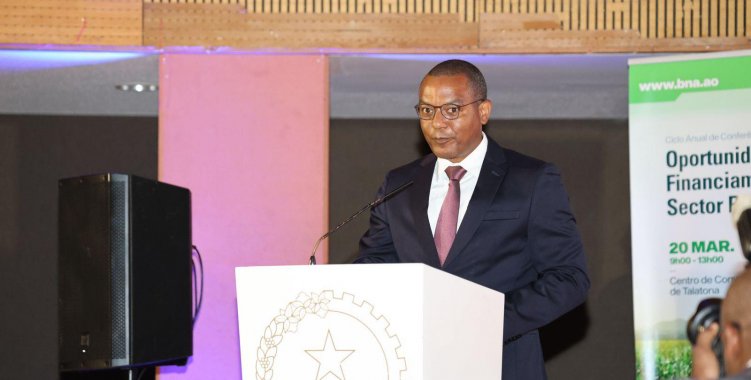Regarding financing for the productive sector, Lima Massano highlighted the "strengthening of the public guarantee mechanism, through the Credit Guarantee Fund, for more effective support for small and medium-sized companies".
Quoted in a government statement, to which VerAngola had access, the Minister of State considered that economic development and the well-being of citizens are largely dependent on how the productive sector is invested, financed and integrated into the economy.
"The development of the economy and the well-being of our population depend, to a large extent, on how we invest, finance and integrate the productive sector of our economy today", said the minister, having called for the "contribution of financial regulators, financiers and economic operators to build a stronger and more dynamic economy".
According to José de Lima Massano, the Government has implemented several initiatives to boost and "dynamize the country's productive potential, increase the economy's resilience", as well as "create more opportunities for social inclusion".
However, he considered that the success of these programs will depend on the "convergence of interests between economic agents, in a regulated and competitive, but collaborative market".
At the time, he said that "access to credit continues to be one of the challenges most cited by economic operators when assessing the business environment".
"In the last two years, he also said, credit to the private sector registered growth of around 28 percent, driven mainly by Notice 10 of the National Bank of Angola (BNA), which allowed the granting of a total of 1.3 billion kwanzas, representing 77 percent of credit to the real sector of the economy in the last quarter of 2024", reads the note.
The minister also recalled that, last year, the national economy grew by around 4.4 percent, the "highest rate in the last 10 years", as a result of "structural reforms and policies to stimulate production".
"José Massano warned that maintaining this pace of growth, driven by the non-oil sector, will require more private investment and a greater volume of credit for production chains," the statement said.
"The Angolan Executive continues to adopt measures to stimulate and boost national production, with the aim of accelerating transformation processes that support the diversification of the economy and improve the country's non-oil trade balance", pointed out Lima Massano.
According to the official, "investments in infrastructure to support production will continue, as will the identification of concrete opportunities to improve the business environment, including tax incentives, such as the recent reduction in VAT for capital goods."
To ensure a "more innovative financial system aligned with the needs of companies, it is essential to develop productive businesses in an integrated manner, promote local suppliers and protect national production, in the view of the Minister of State for Economic Coordination", the statement also says.







